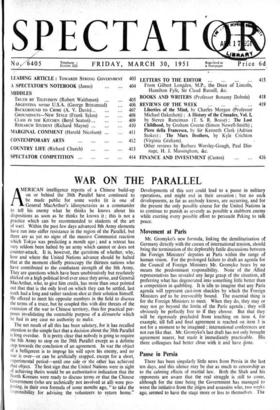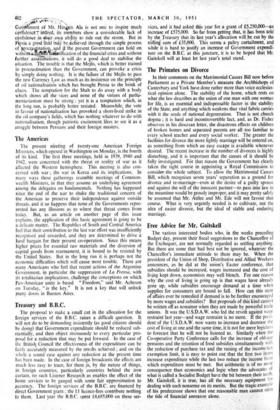Pause in Persia
There has been singularly little news from Persia in the last ten days, and this silence may be due as much to censorship as to the calming effects of martial law. Both the Shah and his opponents are aware that the real struggle is still to come. although for the time being the Government has managed to wrest the initiative from the jingos and assassins who, two weeks ago, seemed to have the stage more or less to themselves. The el" Gotalunent of Mr. linsipin Ala is not one to inspire much cOnfidenceT iirdeed, its members show a considerable lack of cintfidence :in 4ir.o abi'ity to ride out the storm. But in Papia a good bead insly'be,schieved through the simple process of Kocra 'natio .tyid jf The present Government can hold on with° ification of the financial crisis and without further assassinations, it will do a good deal to stabilise the situation. The trouble is that the Mejlis. which is better trained in procrastination than the Government. can provoke a crisis by simply doing nothing. It is the failure of the Mejlis to pass the new Currency Law as much as its insistence on the principle of oil nationalisatiOn which has brought Persia to the brink of chaos. The temptation for the Shah to do away with a body which shows all the vices and none of the virtues of parlia- mentarianism must be strong ; yet it is a temptation which, in the long run, is probably better resisted. Meanwhile, the vote in favour of nationalisation has provoked a short-lived strike in the oil company's fields, which has nothing whatever to do with nationalisation. though patriotic excitement, likes to see it as a struggle between Persians and their foreign masters.































 Previous page
Previous page